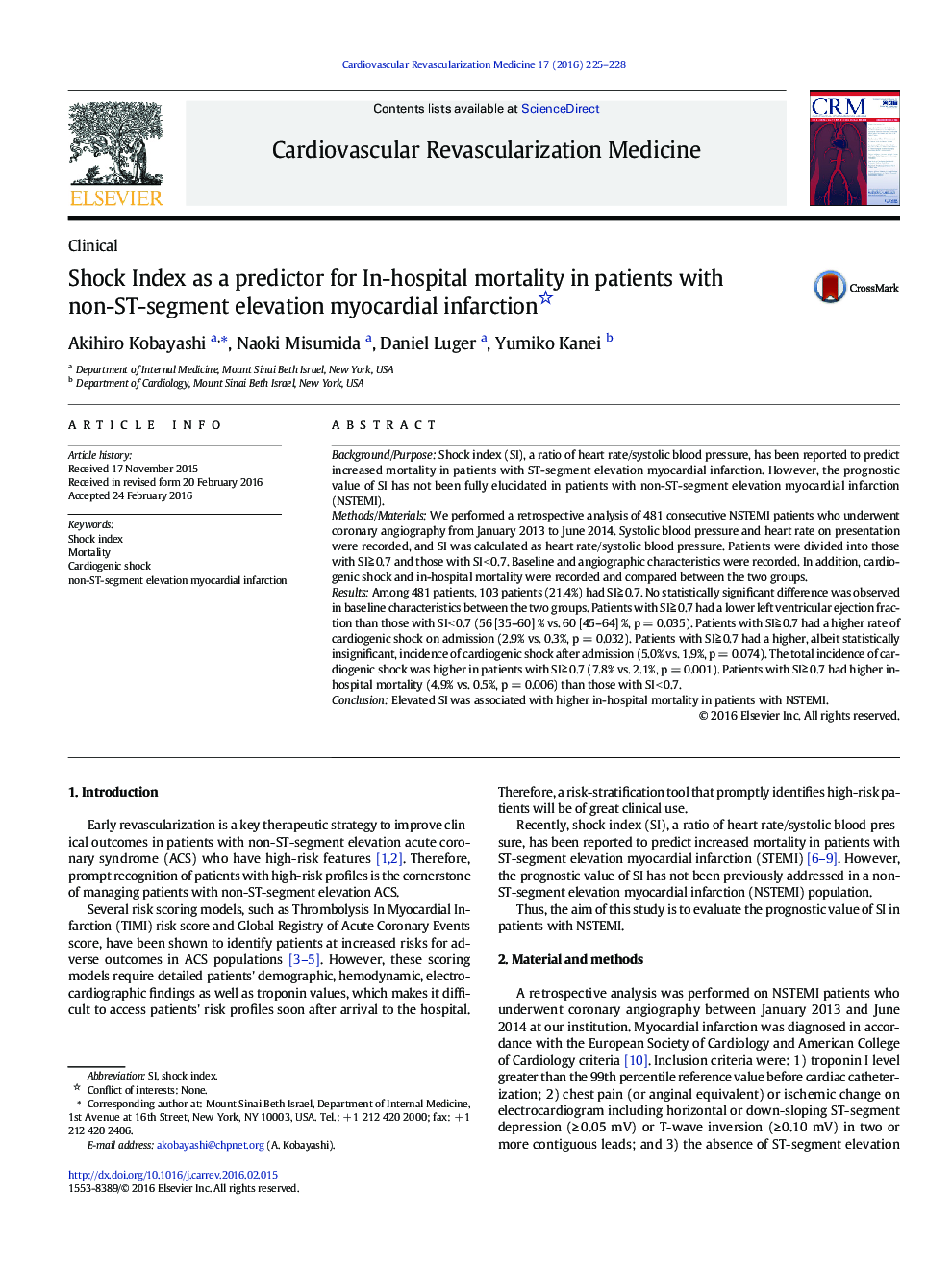| Article ID | Journal | Published Year | Pages | File Type |
|---|---|---|---|---|
| 2836897 | Cardiovascular Revascularization Medicine | 2016 | 4 Pages |
•Shock index (SI) is a ratio of heart rate/systolic blood pressure.•The prognostic value of SI was evaluated in NSTEMI population.•SI predicts in-hospital mortality in NSTEMI patients.•SI may identify patients who will develop cardiogenic shock after admission.
Background/PurposeShock index (SI), a ratio of heart rate/systolic blood pressure, has been reported to predict increased mortality in patients with ST-segment elevation myocardial infarction. However, the prognostic value of SI has not been fully elucidated in patients with non-ST-segment elevation myocardial infarction (NSTEMI).Methods/MaterialsWe performed a retrospective analysis of 481 consecutive NSTEMI patients who underwent coronary angiography from January 2013 to June 2014. Systolic blood pressure and heart rate on presentation were recorded, and SI was calculated as heart rate/systolic blood pressure. Patients were divided into those with SI ≧ 0.7 and those with SI < 0.7. Baseline and angiographic characteristics were recorded. In addition, cardiogenic shock and in-hospital mortality were recorded and compared between the two groups.ResultsAmong 481 patients, 103 patients (21.4%) had SI ≧ 0.7. No statistically significant difference was observed in baseline characteristics between the two groups. Patients with SI ≧ 0.7 had a lower left ventricular ejection fraction than those with SI < 0.7 (56 [35–60] % vs. 60 [45–64] %, p = 0.035). Patients with SI ≧ 0.7 had a higher rate of cardiogenic shock on admission (2.9% vs. 0.3%, p = 0.032). Patients with SI ≧ 0.7 had a higher, albeit statistically insignificant, incidence of cardiogenic shock after admission (5.0% vs. 1.9%, p = 0.074). The total incidence of cardiogenic shock was higher in patients with SI ≧ 0.7 (7.8% vs. 2.1%, p = 0.001). Patients with SI ≧ 0.7 had higher in-hospital mortality (4.9% vs. 0.5%, p = 0.006) than those with SI < 0.7.ConclusionElevated SI was associated with higher in-hospital mortality in patients with NSTEMI.
